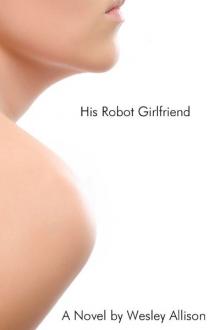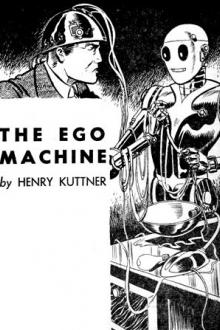The Boy Who Fell from the Sky - Jule Owen (english love story books TXT) 📗

- Author: Jule Owen
- Performer: -
Book online «The Boy Who Fell from the Sky - Jule Owen (english love story books TXT) 📗». Author Jule Owen
Mathew looks at the ferryman, a man in his twenties, small and scrawny but muscled and heavily tattooed. He isn’t confident about going with this man and glances back uncertainly at his guard, now the most reassuring figure imaginable.
“We have a tracker on you,” the guard says. “We know where you are at all times. We’ll be waiting for you when you come back this afternoon.”
“The boat’s this way,” says the ferryman. Mathew has no choice but to follow.
A small number of people are waiting in a makeshift shelter by the water’s edge. They are “respectable” people in suits and clean clothes. Mathew finds himself thinking he will be safe with these people. The group is silent. They are as shocked and uncomfortable as he is. The stench from the river is overpowering, and many of them are holding their ties or t-shirts across their mouth and nose. When the riverside streets of London flooded, so did the sewers.
The group is waiting for Mathew.
At the water’s edge a boat, forty feet long and half as wide, sits low in the water. In the back stands a guard in black combats, a machine gun hanging from his arm casually, like a kit bag or a coat. The ferryman steadies a rickety wooden walkway leading onto the boat and helps the passengers on. On the deck an assortment of plastic and wooden chairs, crates and boxes serve as seats.
When they have all found somewhere to sit, a young boy, from the look of him the ferryman’s brother, or perhaps even his son, hands them all umbrellas, mostly old-fashioned black ones. “To keep the sun off,” the boy says. It’s a novel idea of service, Mathew thinks, opening his gratefully. It’s already hot. His umbrella has a broken spoke.
The ferryman starts the engine. The boy pulls in the wooden ramp, then runs to the front of the boat and jumps off onto dry land. He pushes the boat into the water until he is waist deep and then heaves himself up, head first, his legs dangling in the air. Mathew doesn’t want to know what the boy was wading in. He finds himself pulling his t-shirt over his nose, like the others, and breathes in the clean detergent smell.
The boat powers away from the shore and heads into the centre of the river, racing along, the current behind them.
Mathew has travelled along the river many times in ferryboats in better times, but the Thames is transformed. It was never a pretty river. It was always too powerful and at high tide slightly disturbing, like a wild animal running through the heart of civilisation. Now it is positively feral, spreading its arms anywhere to grab at the land.
The Royal Naval College is half-submerged, buildings sunk beneath the thick brown water lapping through broken windows and tugging on sodden curtains. The old tea clipper, the Cutty Sark, is on one final voyage, its glass skirt shattered by the force of the incoming water, steel ties worked loose. It sails again along the Thames, a ghost ship, rigging flapping, its Muntz metal bottom glistening in the sunshine as it cuts through the muddy sludge of the river. The wooden sailor climbing on its mast surveys the surrounding devastation, facing north across the river to the strange, newly formed wetlands of the Isle of Dogs.
The South Dock Marina and Greenland Dock have been breached, boats sunk and broken against their moorings, some broken free, wild horses in the incoming tidal surge, untapped now by the overrun Thames Barrier downriver.
Northwards, Canary Wharf is a sunken forest of skyscrapers, the bright day reflected in the newly formed lake washing the panes of the glass sides of the first four stories. It’s a city of mirrors floating in the sky.
As they travel on, the boatman expertly dodging flotsam, they see more crew-less yachts cut loose from London’s many marinas, along with uprooted trees, branches, park benches, and furniture washed from riverside homes. The boatman pushes larger objects away with a long oar.
Then he cuts the engine, and they watch him push away a strange bundle. It turns in the water, and Mathew sees it is a distended corpse, made bloated and grotesque by days in the river.
“Shouldn’t we pull it out?” someone says.
The boatman turns and grins. “Do ya want it sittin' wif ya?”
The one voice of conscience is silenced, and no one else speaks.
The body is taken into the current, just another piece of flood debris, and they power away from it, the smell lingering long enough for them all to find it hard to forget.
They pass a block of flats where people have made a camp on the roof, a fire burning smokily away. A boat is tethered to the wall, and someone is returning via the unsubmerged part of a fire escape. Then Mathew notices that many waterside rooftops have people on them, with improvised shelters built to protect them from the rain and the sun. Even though it is November, the sun is harsh.
“Why do they stay?” one of the passengers asks a companion.
“Nowhere else to go. Or to protect their stuff. There’s so much looting. Who knows what you would do if this happened to you.”
“The river’s miles from my house. It will never happen to me.”
A police boat powers past them, disappearing around the bend of the river. When they reach it again, the police are pulling three men and a woman into the boat, all handcuffed.
“Looters,” someone says.
“Wouldn’t like to be in their shoes.”
“What will happen to them, do you think?”
“Who cares?”
They pass Wapping and progress under Tower Bridge, both spans of the bascule up. Water laps high on the walls of the Tower of London. They continue under London Bridge and Southwark Bridge and just scrape under the Millennium Bridge. They watch other, taller boats pulling to the side and offloading their passengers.
“The water level must be dropping at last,” the talkative passenger says. “We couldn’t travel this far on Monday.”
Victoria Embankment is flooded, as are the lower floors of all the buildings on it. They have to pull in before Westminster Bridge, a part of the river their ferryman says is impassable, so they make their way along Northumberland Avenue, branch off by Craven Street and stop next to the Playhouse Theatre. The boy jumps off at the waterline, pulls in and steadies the boat. The ferryman stops the engine and puts down the plank.
Mathew sees a number of cars waiting at the top of the lane with their armed men, broadcasting the names of the people they’re waiting for, type hanging above their heads. There are a number of real policemen amongst them.
The passengers begin filing off. Mathew walks slowly along the road until he spots a floating tag reading “Erlang.” The guard reads Mathew’s Nexus information but still wants to check his ID card, examining it critically and scanning the chip before opening the car door.
It takes a while for the road to clear of cars. Once away from the river, the familiar streets are relatively everyday, except there are far fewer pedestrians and there are piles of sandbags around the doorways of the buildings nearest the waterline.
At Trafalgar Square things are different. Whitehall is blockaded, and there are army vehicles parked in the street and packs of soldiers, some in exoskeletons. They are standing still, poised, but if needed they are capable of running twice as fast as the fastest man and crushing human bones with their robotic hands.
Surveillance robots, black metal dogs without faces, patrol the area, sniffing for explosives or people. When they move from one area to the next, they bound with an uncanny gait.
He glances above, noticing movement. A couple of drones fly over the roof of the National Gallery.
They start to drive along Charing Cross Road and sit for a while in traffic. Through the glass separating Mathew from the guard he hears a sudden flurry of noise. The guard speaks to the on-board computer, turns, pulls back the glass plate, and says to Mathew, “We’re going to take a detour. Nothing to worry about.” This immediately makes Mathew anxious.
The car swings off to the right. They head along St Martin’s Lane. As they get to Seven Dials, Mathew peers along Cranbourn Street.
There are people everywhere, and many of them are throwing things. A car is on fire, and furniture is piled in the road, also alight. An armoured police van drives into the pile of burning furniture, sending it flying, knocking people aside. There’s the sound of gunfire.
Mathew’s car turns sharply onto Garrick Street away from the disturbance. As they drive away, he hears an explosion. They drive along Floral Street. Covent Garden is deserted. The guard turns back to Mathew, grinning, “Told you. Safe as houses.”
Five minutes later, they park in front of Mathew’s school. He walks up the steps, shaky and unnerved. There are guards here too, checking people’s ID. As they move through the doors, he joins the line, thinking he’d never expected to be grateful to come into this building.
10 Robot Building
They are sitting in a windowless room facing a large Canvas screen. When the students are all assembled, a video starts to play, providing their challenge instructions. Some people start to write notes on their personal Paper devices, their super-thin portable computer interfaces. Mathew doesn’t bother. He switches off his dragons in order to concentrate.
The challenge is to build any kind of robot, but extra points will be awarded to the group for originality and planning.
Mathew knows the room is well scattered with cameras and that the real purpose of the exercise is to test how each individual scores against the academy’s latest template for leadership and teamwork. The criteria change depending on the academic staff involved. It’s impossible to discover who is setting and assessing the test, so it’s impossible to game the system.
Mathew hates these exercises.
He scans the room and recognises all of the fifteen assembled, including Alison Gai and Kaleb Merryfield, his physics partner, but his heart sinks when he spots Theo Arkam.
He realises his arms are folded across his chest, and this appears defensive. Arkam is contemplating him with a slight smile and an ironic twinkle. He is sitting back in his chair with his arms behind his head.
“Great way to start, Erling,” he says. “Awesome body language.”
“It’s Erlang, as you know. And likewise,” Mathew says, nodding at Arkam’s posture. “Not to mention awesome interpersonal skills.” But he isn’t as cocky as he sounds.
“I’m so sorry for getting your name wrong,” Arkam says. His voice sounds genuinely contrite, but there’s a hard glint in his eyes. “I was almost right.” He suddenly turns to the rest of the room. “Right, team, shall we get started? Is that alright with you, Mathew? Are you ready? There are fifteen of us. Shall we split into five teams of three and brainstorm high-level ideas for fifteen minutes? We then each come back with a pitch and vote in a ballot on the best one?”
“Are there some instructions I missed appointing you leader, or did you appoint yourself?” Mathew says.
“It was a suggestion in the absence of any alternatives.”
“There wasn’t a chance for anyone to offer any alternatives, was there?”
“He’s right, Arkam,” Alison says.
“You





Comments (0)